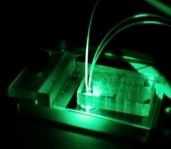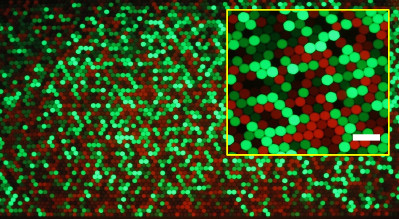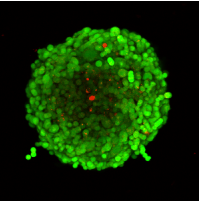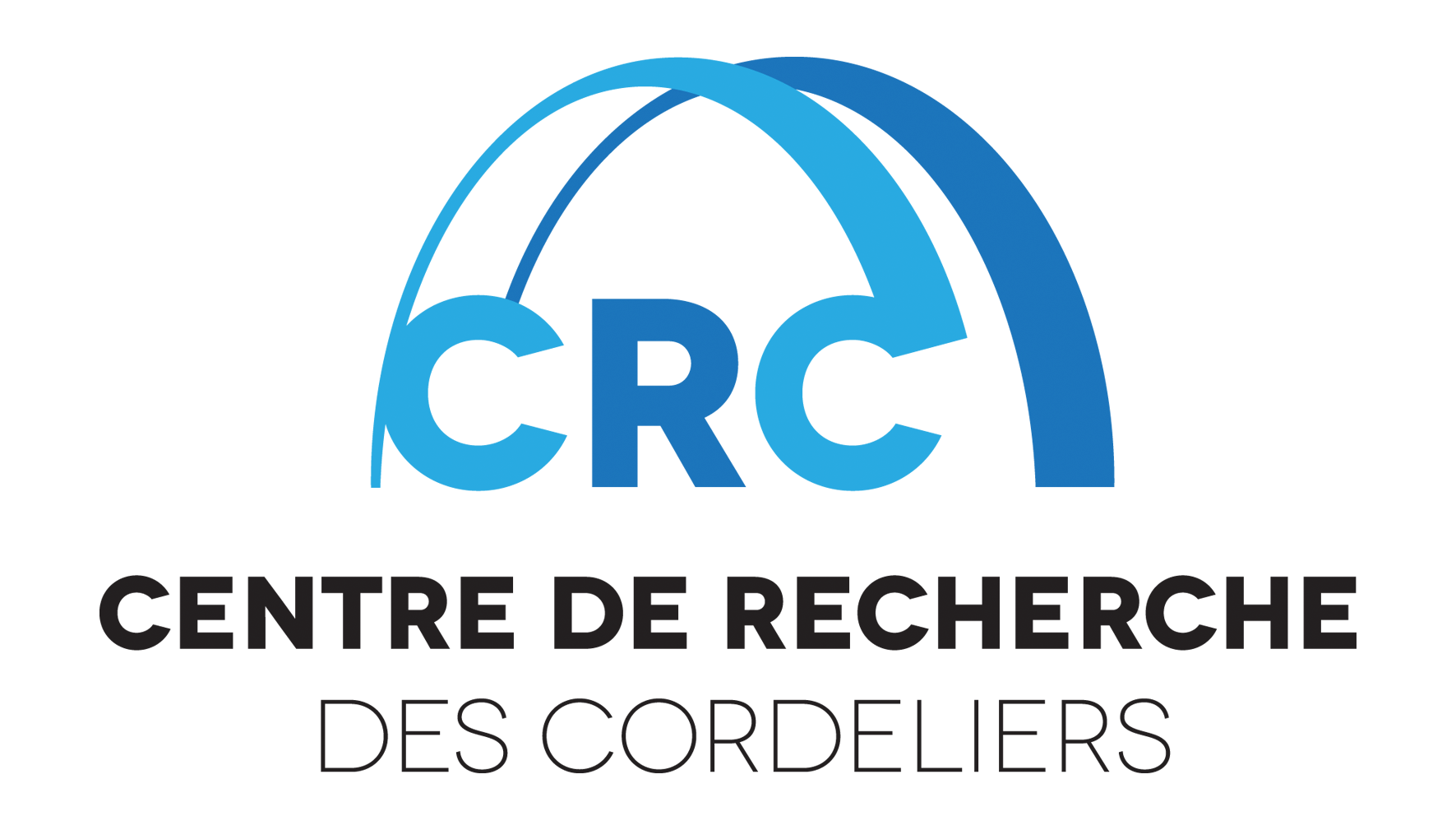Development of new microfluidic tools and procedures for biology
Dr Wenjin Xiao, Julia Linnea-Kallberg, Alix Londo


We aim at creating new generations of devices, tools and procedures for biological and chemical applications. Our research is dedicated to develop and use microfluidic systems to perform experiments that are out of the possibilities of existing technologies. Within other, our projects aim at : (i) developing microfluidic platforms and strategies allowing to characterize and understand tumor heterogeneity and its implication for cancer research and treatment management; (ii) creating new generations of microfluidic devices for the non-invasive detection of cancer biomarkers with applications in personalized medicine, cancer recurrence detection and cancer diagnostics.
We have developed several generations of microfluidic platforms for the creation of 3D multicellular tumour spheroids for the study of tumour heterogeneity and resistance to therapy. This technology is currently under optimization to favour high-throughput features, automatic manipulation, on-chip analyses, and single spheroid recovery. In order to host more comprehensive studies, the microfluidic platform will be integrated with other technologies, e.g. 3D printing, to enable both precise manipulation of the cellular microenvironment and tissue-level complexity, with the final goal to anticipate patient response to therapies using tumour mimics.
We have also developed droplet-based microfluidic platforms allowing for high-throughput single-cell studies through encapsulation, sorting and characterizations of cells in droplets (collaboration Pr. JC Baret, CRPP, Univ. Bordeaux).
Publications:
Isothermal digital detection of microRNAs using background-free molecular circuit. G. Gines, R. Menezes, N. Kaori, A-S. Kirstetter, V. Taly* and Y. Rondelez. Science Advances (2020), 6(4):eaay5952. doi: 10.1126/sciadv.aay5952. Press release: https://www.espci.psl.eu/en/news/2020/dna-nanotechnology-to-detect-cancer-biomarkers link
Mechanical Characterization of Cells and Microspheres Sorted by Acoustophoresis with In-Line Resistive Pulse Sensing. Antoine Riaud, Wei Wang, Anh L.P. Thai, and Valerie Taly Phys. Rev. Applied 13, 034058 – Published 24 March 2020 link
Microfluidic extraction and digital quantification of circulating cell-free DNA from serum. K. Perez-Toralla, I. Pereiro, S.Garrigou F. Di Federico C. Proudhon F-C. Bidard J. Viovy J-L. Viovy, V. Taly* and S. Descroix. Sensors and Actuators B: Chemical. (2019), 286: 533-539. link
High throughput multiplexed fluorescence activated droplet sorting. O. Caen, S. Schuetz, M. Jammalamadaka, J. Vrignon, P. Nizard, T. Schneider, J-C. Baret and V. Taly* Microsystems & Nanoengineering (Recent journal of Nature group) (2018), 4:33. link
BIABooster: Online DNA Concentration and Size Profiling with a Limit of Detection of 10 fg/μL and Application to High-Sensitivity Characterization of Circulating Cell-Free DNA. CL. Andriamanampisoa, A. Bancaud, A. Boutonnet-Rodat, A. Didelot, J. Fabre, F. Fina, F. Garlan, S. Garrigou, C. Gaudy, F. Ginot*, D. Henaff, P. Laurent-Puig, A. Morin, V. Picot, L. Saias, V. Taly, P. Tomasini, A. Zaanan. Analytical Chemistry (2018), 90(6): 3766-3774. Press Release by CNRS: http://www2.cnrs.fr/presse/communique/5509.html link
Droplet-based digital PCR microfluidic procedures for genetic and epigenetic alteration(s) detection
Kariman Chaba, Benjamin Natagom, Geoffroy Poulet, Thomas Jet, Julia Linnea-Kallberg, Guillaume Beinse , Marie Metairie, Eef Van Den Borst, Wenjin Xiao


Genetic and epigenetic alterations within tumor DNA can be used as highly specific biomarkers to distinguish cancer cells from their normal counterparts. These biomarkers are potentially useful for the diagnosis, prognosis, treatment and follow-up of patients. In order to have the required sensitivity and specificity to detect rare tumor DNA in body effluents with a specific focus on blood samples, a simple, sensitive and quantitative procedure to measure the ratio of mutant to wild-type genes is required. We have developed a procedure allowing the highly sensitive detection of mutated DNA in a quantitative manner within complex mixtures of DNA. In the original work, by using a droplet-based microfluidic system to perform digital PCR in millions of picoliter droplets, we demonstrated the possibility to have an accurate and sensitive quantification of mutated KRAS oncogene in gDNA. This technique enabled the determination of mutant allelic specific imbalance (MASI) in several cancer cell-lines and the precise quantification of mutated KRAS gene in the presence of a 200 000-fold excess of unmutated KRAS genes. The sensitivity is only limited by the number of droplets analyzed. Furthermore, it is also possible to perform multiplex analysis allowing the detection of several different mutations within a single biomarker, mutations in different biomarkers, or even to perform whole targeted pathway analysis. We have now developed droplet-based digital procedures for the highly sensitive detection of a wide range of mutations, copy number variations, DNA hypermethylation and for the quantitative analysis of miRNA and mRNA expression. In particular, several strategies Isothermal digital detection strategies for the detection of microRNA using molecular circuits have been recently developed in strong interaction with Drs Y. Rondelez and G. Gines (ESPCI, Gulliver Lab, Paris, France). Future aims of the project are the optimization and validation of this method for its widespread use in clinical oncology.
Recently in strong interaction with Dr Hélène team (UMRS1138, team FunGeST, hEGP, Paris) and David Veyer (hEGP, Paris), we extended our research to the development of original strategies, based on ddPCR, dedicated to the detection of SARS-CoV-2 as well as the management and follow-up of COVID-19 patients.
Isothermal digital detection of microRNAs using background-free molecular circuit. G. Gines, R. Menezes, N. Kaori, A-S. Kirstetter, V. Taly* and Y. Rondelez. Science Advances (2020), 6(4):eaay5952. doi: 10.1126/sciadv.aay5952. Press release: https://www.espci.psl.eu/en/news/2020/dna-nanotechnology-to-detect-cancer-biomarkers link
Mechanical Characterization of Cells and Microspheres Sorted by Acoustophoresis with In-Line Resistive Pulse Sensing. Antoine Riaud, Wei Wang, Anh L.P. Thai, and Valerie Taly Phys. Rev. Applied 13, 034058 – Published 24 March 2020 link
Microfluidic extraction and digital quantification of circulating cell-free DNA from serum. K. Perez-Toralla, I. Pereiro, S.Garrigou F. Di Federico C. Proudhon F-C. Bidard J. Viovy J-L. Viovy, V. Taly* and S. Descroix. Sensors and Actuators B: Chemical. (2019), 286: 533-539. link
High throughput multiplexed fluorescence activated droplet sorting. O. Caen, S. Schuetz, M. Jammalamadaka, J. Vrignon, P. Nizard, T. Schneider, J-C. Baret and V. Taly* Microsystems & Nanoengineering (Recent journal of Nature group) (2018), 4:33. link
BIABooster: Online DNA Concentration and Size Profiling with a Limit of Detection of 10 fg/μL and Application to High-Sensitivity Characterization of Circulating Cell-Free DNA. CL. Andriamanampisoa, A. Bancaud, A. Boutonnet-Rodat, A. Didelot, J. Fabre, F. Fina, F. Garlan, S. Garrigou, C. Gaudy, F. Ginot*, D. Henaff, P. Laurent-Puig, A. Morin, V. Picot, L. Saias, V. Taly, P. Tomasini, A. Zaanan. Analytical Chemistry (2018), 90(6): 3766-3774. Press Release by CNRS: http://www2.cnrs.fr/presse/communique/5509.html link
Applications of droplet-based digital PCR approaches in cancer research
Jerome Alexandre, Bruno Borghese, Anne-Sophie Bats, Henri Azais, Kariman Chaba, Benjamin Natagom, Geoffroy Poulet, Thomas Jet, Julia Linnea-Kallberg, Guillaume Beinse, Marie Metairie, Eef Van Den Borst
Droplet-based digital procedure presents high potentialities for cancer research. Consequently in parallel to the development of highly sensitive quantitative microfluidic tools for cancer biomarkers detection, part of our research is dedicated to their validation. Multiplex strategies were thus developed and validated for the analysis of genetic and epigenetic cancer-specific alterations and DNA integrity. Our projects are aiming at evaluating the use of circulating tumor DNA as a potential marker for patient follow-up and treatment management as well as investigating the role of low frequency subclones for cancer treatment. Our main focus is directed against gynecological cancers (PIs : Pr. J. Alexandre, Pr. B. Borghese, Pr. AS Bats, Dr H. Azais), digestive cancers (with Pr. P. Laurent-Puig, Pr. J. Taieb, Pr. JB Bachet, Pr. A. Zaanan, Dr L. Benhaim, group 1), lung cancers (with Pr H. Blons, group 1) and HPV-associated cancers (with Dr H. Péré, Dr D. Veyer and Pr. F. Lecuru), we are also developing tools and strategies for other cancers through collaborative projects (with Pr. J. Donadieu, Dr S. Héritier and Pr. JF. Emile for Langerhans cell histiocytosis and Erdheim-Chester Disease).
Publications:
HPV circulating tumoral DNA quantification by droplet-based digital PCR: a promising predictive and prognostic biomarker for HPV-associated oropharyngeal cancers. D. Veyer, M. Wack, M. Mandavit, S. Garrigou, S. Hans, P. Bonfils, L. Belec, S. Wang-Renault, P. Laurent-Puig, H. Mirghani, B. Rance, V. Taly, C. Badoual, H. Péré. International Journal of Cancer (2019), 15;147(4):1222-1227. link
Vemurafenib for refractory multisystem Langerhans cell histiocytosis in children: an international observational study. J. Donadieu, I. A. Larabi, M. Tardieu, J. Visser, H. Caroline, E. Sieni, N. Kabbara, M. Barkaoui, P. Milne, J. Haroche, Z. Helias, M. Jehanne, A. Kolenova, A. Pagnier, N. Aladjidi, P. Schneider, G. Plat, A. Lutun, A. Heisig, A. Ferster, V. Efremova, M. Ahlmann, L. Blanc, J. Nicholson, A. Lambilliote, H. Boudiaf, A. Lissat, K. Svojgr, F. Bernard, S. Elitzur, M. Golan, D. Evseev, M. Maschan, A. Idbaih, O. Slater, M. Minkow, V. Taly, M. Collin, J-C. Alvarez, J-F. Emile, S. Héritier. Journal of Clinical Oncology (2019). 37(31):2857-2865. link
Base-Position Error Rate Analysis of Next-Generation Sequencing Applied to Circulating Tumor DNA in Non-Small Cell Lung Cancer: A Prospective Study. N. Pécuchet, E. Zonta, A. Didelot, P. Combe, C. Thibault, L. Gibault, C. Luscan, Y. Rozenholc, V. Taly, P. Laurent-Puig, H. Blons, E. Fabre. Plos Medecine (2016), 13(12):e1002199. link
Early evaluation of circulating tumor DNA as marker of therapeutic efficacy in metastatic colorectal cancer patients (PLACOL study). F. Garlan, P. Laurent-Puig, N. Siauve, A. Didelot, G. Perkins, H. Blons, J. Taieb, V. Taly and A. Zaanan. Clinical Cancer Research (2017), 23(18):5416-5425. link
A Study of Hypermethylated Circulating Tumor DNA as a Universal Colorectal Cancer Biomarker. S. Garrigou, G. Perkins, F. Garlan, C. Normand, A. Didelot, D. Le Corre, S. Peyvandi, C. Mulot, R. Niarra, P. Aucouturier, G. Chatellier, P. Nizard, K. Perez-Toralla, E. Zonta, C. Charpy, A. Pujals, C. Barau, O. Bouché, J.-F. Emile, D. Pezet, F. Bibeau, J. B. Hutchison, D. R. Link, A. Zaanan, P. Laurent-Puig, I. Sobhani and V. Taly*. Clinical Chemistry (2016), 62(8): 1129-39. link
Translational research programs in gynaecological oncology
Jerome Alexandre, Anne-Sophie Bats, Bruno Borghese, Henri Azais, Benjamin Nayagom, Guillaume Beinse, Marie Metairie, Eef van den Borst

Two main programs focused on ovarian and endometrial carcinoma have been initiated. A translational platform has been established between Paris University Hospitals to optimize patient accrual and subsequent sample and data collection. The gynaecological oncology translational team includes several investigators from Georges Pompidou European Hospital (Dr H. Azais, Pr A-S. Bats) and Cochin Hospital (Pr J. Alexandre, Pr B. Borghese), as well as a team gathering researchers (Dr B. Nayagom), Master 2 student with a scientific background (Mrs. E. van den Borst), and Master 2 (Dr M. Metairie) / PhD students (Dr G. Beinse) with a medical background.
The objective of the “ovarian cancer” project is to clarify the interest of circulating tumor DNA (ctDNA) as a diagnostic and prognostic marker and to evaluate the response to treatment. Several signatures are currently being evaluated to strengthen the quality of cDNA detection, in particular by ddPCR. This work is based on the analysis of clinical and biological data from patients included in the BIOVAIRE and CHIVA (NCT01583322) prospective protocols.
Regarding endometrial carcinoma, the group aims to develop tools allowing both personalized prognostication and therapeutic target identification by combining ddPCR-based ctDNA detection for residual disease assessment after radical surgery, along with clinically applicable transcriptomic signatures through polyA-RNASeq to identify prognostic or theranostic models. This project (OncoGyn) has been initiated as a pilot project in 2020 and is now under prospective accrual (http://carpem.fr/activites/les-plateformes/biobanques/projets-de-recherche-collection-oncocentre/). Further works in collaboration with the ARCAGY-GINECO group are under consideration.
Platforms for toxicological analysis of chemical and drugs
Dr Wenjin Xiao, Julia Linnea-Kallberg, Alix Londo

Our aim is to develop platforms for reliable High Throughput toxicology analysis allowing the toxicological properties of any xenobiotic (including for example drugs or environmental pollutants) to be determined accurately. In addition, to procure an unprecedented tool for toxicology such platforms will reduce the number of animals required to establish the safety of a chemical. The use of digital microfluidic will allow performing experiments, which are totally outside the range of all existing technologies. By allowing to obtain a high level of informations (metabolism, enzymes induction, cytotoxicity, tissue toxicity, body penetration, etc.) for thousands to millions of compounds there is no doubt that such a platform would constitute a great benefit toward the protection of human health and environment. The complementarity of the different elements of our platform will allow toxicology assays for an unprecedented number of compounds leading to the necessary technological breakthrough in toxicology.
Project-based collaborations and services for fees
Based on our expertise in the development of new tools and strategies for the analysis of biological samples, our team proposes collaborative or service-based projects in oncology or toxicology (PI: Dr B. Nayagom).

